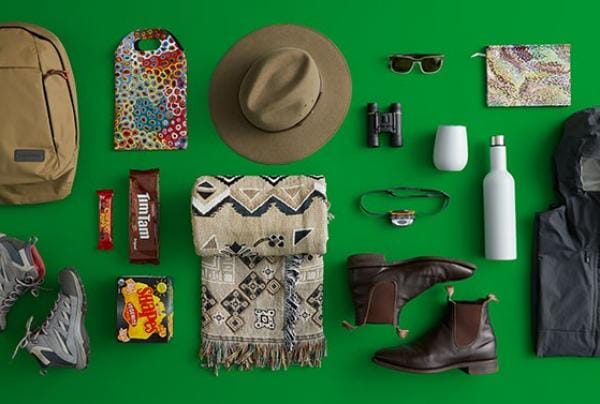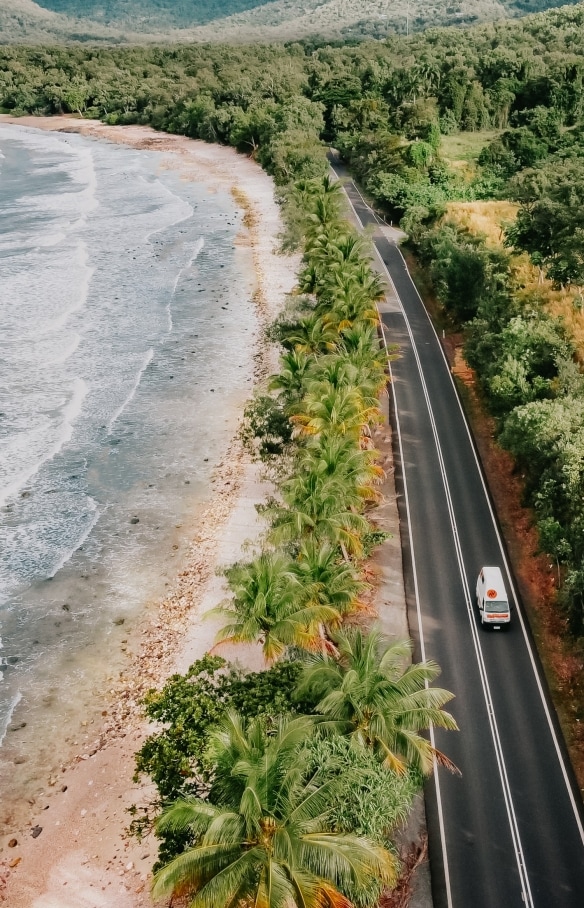- Walking or hiking shoes to explore some of Australia's top hiking trails
- Headlamp to find epic stargazing spots
- Active wear for working up a sweat
- Day pack or backpack
- Thermal wine glass or sustainable coffee cup
- Aussie Snacks (we recommend Tim Tams, Caramello Koalas, Shapes, and Allen's lollies!)
- Wind or waterproof jacket depending on the weather
- Binoculars for spotting local wildlife
- First aid kit: if not travelling on a guided tour
- Travel essentials
Pro tip: a lightweight picnic rug or blanket will take your trip photos from boring to bougie.



















































































































































